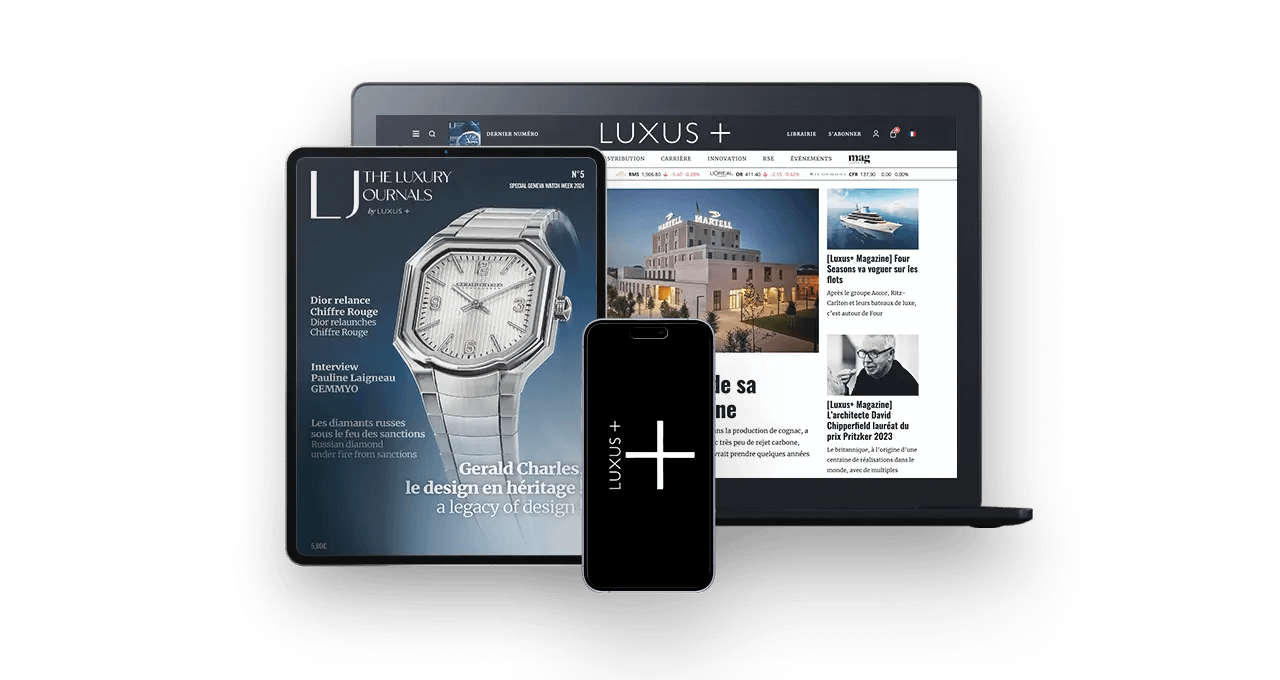E-reputation, or cyber-reputation, is the online reputation of a person or company. It was born in the Web 2.0 era, and is confused with an entity’s overall reputation and image, built up and consolidated over many years.
The positive and exceptional image of brands must not be diluted or devalued in the race to digitalize and innovate luxury brands. The competitive advantage and reputation built up by a good brand e-reputation must be preserved and defended.
To achieve this, marketing professionals are generally very vigilant in integrating legal management of e-reputation risks into their development strategy. The notion of reputational risk therefore combines both economic and managerial dimensions, while at the same time having a strong legal underpinning. It is a genuine governance tool.
Two points in particular will be addressed in this column:
Legal weapons to defend brand e-reputation;
The new trend towards influencer management of brand e-reputation.
Defending the e-reputation of brands in the wake of defending the reputation of luxury brands
Companies must defend their e-reputation and their brand(s). Brand owners can take civil or criminal action against counterfeiters. Sanctions can include damages, confiscation of infringing products and, in some cases, imprisonment.
And let’s not forget the Commission Nationale de l’Informatique et des Libertés (CNIL), whose action can be invaluable when the online image of a company or individual is damaged. The CNIL does not intervene directly to remove or dereference litigious content, but it does have the power to sanction companies that refuse to intervene contrary to the rules imposed by the General Data Protection Regulation (RGPD).
More generally, we can list four offenses that allow e-reputation to be prosecuted to brands:
Defamation:
This can concern a natural person or a legal entity and is defined as “any allegation or imputation of a fact that is prejudicial to the honor or consideration of the person or body to which the fact is imputed” (Article 29 paragraph 1 of the law of July 29, 1881 on freedom of the press).
Internet users are increasingly posting comments about products and services offered by companies in general, on social networks and discussion forums whose content remains accessible online.
However, it can be difficult to identify negative content that may constitute defamation. As the statute of limitations is very short, at three months from the time of publication, it is advisable to have an analysis carried out quickly by a specialist lawyer.
Insult :
It is defined as “outrageous expression, term of contempt or invective” (Article 29 paragraph 1 of the law of July 29 1881 on freedom of the press).
As with defamation, the time limit for taking action is particularly short: three months from the date of publication.
The comments are not necessarily those made by customers about products and services, but may also be those made by competitors, or by staff, service providers or even employees who will have an impact on the brands.
The Court of Cassation has consistently stated that “while employees enjoy freedom of expression both inside and outside the company, to which only restrictions justified by the task in hand and proportionate to the aim pursued may be imposed, they may not abuse this freedom by making insulting, defamatory or excessive comments”.
Litigious comments can also be made publicly offline, and have a major impact through comments on facts and court rulings. In this way, luxury brands are sometimes affected by the comments made by celebrities promoting their products, or even by the designers who work for them. We all remember the September 2011 case in which John Galliano, Dior’s star designer, made anti-Semitic remarks and was convicted of public insult. This situation had an impact on customers, and it was unacceptable for the brand to be indirectly associated with it. Dior fired John Galliano. In the wake of this affair, the designer was no longer mentioned on the Dior website, even though he had been responsible for a number of creations. Crisis communications were quickly put in place to preserve the reputation of the House and the brand’s e-reputation.
Prior to this case, Jean-Paul Guerlain, when asked about the creation of Samsara perfume on France 2 on October 15, 2010, had replied: “For once, I worked like a nigger. I don’t know if negroes have always worked so hard, but…”. Despite the apology, protests and calls for a boycott of Guerlain products appeared on the web. The bad buzz had not been handled quickly and effectively. Monsieur Guerlain was sentenced by the Paris Correctional Court on December 29, 2009.
Luxury brands can also face acts of denigration.
Denigration:
Unlike defamation and insult, which are directed at a person, denigration is directed at goods and/or services. It consists in publicly discrediting a person or company, by criticizing its products or work, with the aim of harming it, even in the absence of any competitive situation, in accordance with article 1240 of the French Civil Code.
It turns out that luxury brands are particularly afraid of bad buzz, the negative communication about a product or brand that spreads rapidly on social networks.
The time limit for taking action is five years from the date of the act of disparagement.
As it happens, it is sometimes difficult for brands to identify communications on the Internet that could be considered reprehensible as denigration. You should not hesitate to have them analyzed by a lawyer specializing in press law and/or intellectual property, in order to act quickly, as the effects can be devastating and costly for a brand.
By way of example, the Paris Court of Appeal, in a decision dated September 24, 2021, convicted an Internet user on the grounds of disparagement: “Finally, the violent value of the definitive expression and without any further comment in the form of a slogan ‘C’est quoi cette merde, il faut vite jeter dans le feu’ exceeds the humor and derision that the right of free criticism included in freedom of expression could authorize on the occasion of the launch of the first magazine, and characterizes the reproached act of disparagement for which Mr. X and his company ADCI will be held jointly and severally liable (…)”. X and his company ADCI will be held jointly and severally liable (…)”.
Generally speaking, judges strike a balance between the right to criticism and the denigrating nature of comments.
Parasitism:
Parasitism involves taking undue advantage of the know-how and human and financial efforts of a company that has fallen victim to the actions of the person usurping the reputation acquired by the competitor. Parasitism involves demonstrating a desire to follow in a company’s footsteps and undermine its economic value.
What these four offences have in common is the damage they cause to a brand’s e-reputation. This damage must be compensated in full, depending on the company’s reputation and therefore the brand’s notoriety.
Sometimes, no legal proceedings are taken, but the justice of social networks can prove more terrible for brands faced with image crises that damage their reputation.
We remember, for example, this “Blackface” affair that caused a stir in the United States in February 2019, and caused Gucci some difficulties. Indeed, Harlem tailor Dapper Dan had posted the following on his Instagram page following the sale of a balaclava sweater on the brand’s website “Yet another fashion house that has made an outrageous mistake. No amount of justification or apology will erase this kind of insult”.
The balaclava sweater was black and hemmed with oversized red lips. Gucci faced accusations of racism. Several celebrities, including rapper 50 Cent, called for a boycott of the brand. Gucci apologized on Twitter and withdrew the product from sale. Gucci immediately responded by setting up a “Gucci changemakers” program, bringing together experts to advise on diversity, inclusion and culture.
The Prada brand had offered a black figure with big red lips for sale in 2019. It was also the target of social networks and ended up withdrawing it from sale, publishing a comment “The resemblance of our products to blackface was not at all intentional, but we recognize that this does not excuse the damage caused. From now on, we are committed to improving our diversity training and will immediately create an advisory board to guide our diversity, inclusion and cultural efforts.”
These societal issues are of concern to brands, which accompany their marketing strategy with advice on human sciences, and on certain cultures and customs, to understand their global customer base.
In late 2022, the Balenciaga brand was accused of promoting pedophilia and sexualizing children. In an advertising campaign featuring children, accessories and plush bags were clearly inspired by BDSM. The brand apologized and withdrew its campaign a few days after the criticism began.
In order to reach a new clientele, the luxury Houses called on bloggers and influencers, who have concerns and interests close to those of the new generations. Almost three months after the bad buzz and controversy on social networks, Balenciaga announced via an Instagram post its commitment to the protection of children, and more specifically its collaboration with the Nationale Children’s Alliance, an association that helps victims of sexual abuse. This affair has seen some legal twists and turns, as Balenciaga filed a complaint at the end of November 2022 with the New York Supreme Court against production company North Six Inc. and set designer Nicholas des Jardins in order to obtain compensation for the significant damage caused by the aforementioned advertising campaign. Despite their statement on Instagram, videos of Internet users throwing and burning the brand’s clothes and accessories went viral and were seen by over 25 million people. Even one of the brand’s muses and influencers, Kim Kardashian, decided to “”reassessing its relationship with the brand” until it assumes its responsibilities in this suit.
Finally, on January 22, 2024, Kim Kardashian announced her new collaboration with Balenciaga by posting a black-and-white photograph taken by Antoniou Platon, a famous documentary photographer.
Influencer management of brand e-reputation…
Read also > [CHRONICLE] LUXURY & TECHNOLOGY LEGAL ISSUES – EPISODE 3: CYBER RISKS
Featured Photo: Unsplash +





































